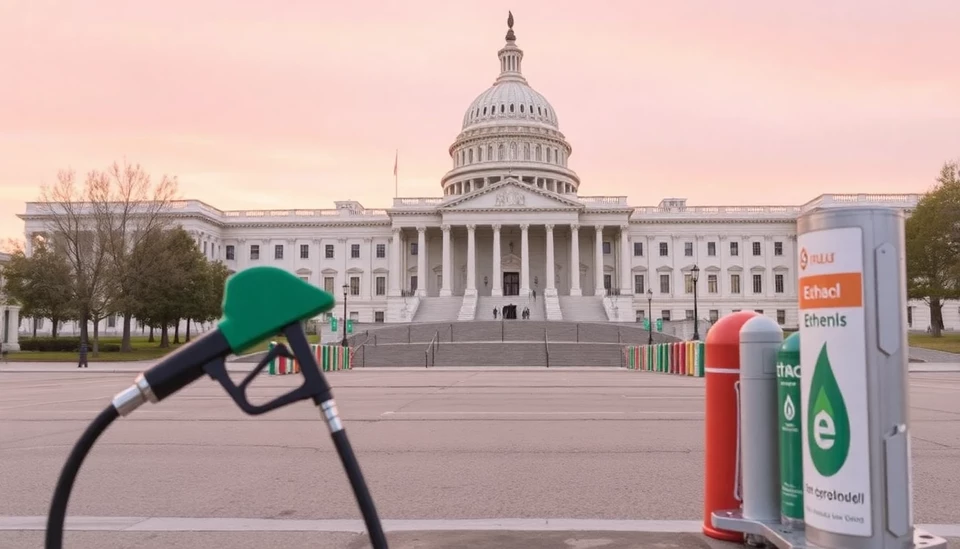
In a significant development for the agricultural and energy sectors, United States lawmakers are contemplating the integration of an ethanol measure into a forthcoming spending bill. This prospective inclusion comes amidst ongoing discussions regarding budget allocations and environmental strategies.
The proposal aims to enhance the use of biofuels, particularly ethanol derived from corn, supporting the American farmer while also addressing the nation's transition to renewable energy sources. As lawmakers weigh the implications of this measure, they are balancing economic benefits for the agricultural industry against environmental concerns and the push for sustainable energy practices.
Supporters of the ethanol measure argue that increasing the production and utilization of biofuels is essential for achieving energy independence and reducing carbon emissions associated with fossil fuels. They assert that the legislation would provide much-needed support to farmers and rural communities that rely heavily on corn production.
On the other hand, critics of the ethanol mandate raise concerns about its environmental impact and the potential competition it creates with food supplies. Some advocate for a broader approach to biofuels that includes various feedstocks beyond corn, which could lead to a more sustainable and environmentally friendly energy landscape.
As lawmakers continue to deliberate, the outcome of this decision could have far-reaching implications for both the agricultural industry and the nation's energy policies. The measure's potential inclusion in the spending bill illustrates the complicated interplay between agricultural interests, energy needs, and environmental responsibility.
Furthermore, this debate comes at a time when the demand for cleaner energy alternatives is more pressing than ever. With climate change at the forefront of global discussions, the ability of biofuels like ethanol to play a significant role in the energy transition remains a pivotal topic among policymakers.
Ultimately, the fate of the ethanol provision will depend on negotiations between various stakeholders, including farmers, environmental groups, and energy industries, each vying for a role in shaping America's energy future. The ongoing discussions will be closely monitored as they unfold in the wake of imminent fiscal deadlines.
The decision is expected to reflect broader governmental priorities, not only in terms of fiscal responsibility but also regarding environmental stewardship and energy sustainability. As this situation develops, it will serve as a critical test case for the Biden administration's commitment to both renewable energy and agricultural support.
With the clock ticking on legislative timelines, those interested in the future of America's energy policy will be paying close attention to how this situation evolves. The outcome could set a precedent for future energy legislation, influencing everything from farmer incomes to national energy security.
As discussions heat up, a diverse coalition of stakeholders is expected to rally either in favor or against the proposed ethanol measure, showcasing the polarized views that often characterize agricultural and energy debates in the United States.
Stay tuned for further updates on this developing story as lawmakers prepare to make decisions that could shape the future of energy and agriculture in the United States.
#Ethanol #Biofuels #USLawmakers #EnergyPolicy #Agriculture #Sustainability #RenewableEnergy #ClimateChange
Author: Peter Collins




